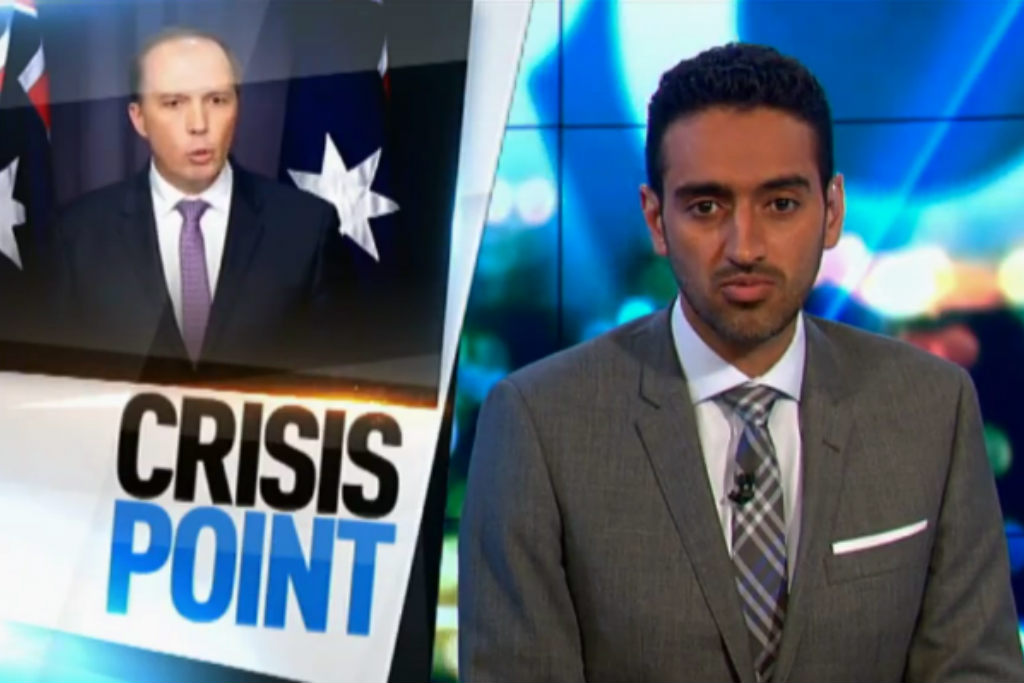Waleed Aly Gets To The Heart Of Why Deaths On Nauru Will Keep Happening
"This is deterrence. This is exactly what it looks like when Australia's policy is working."

The rolling horror of Australia’s asylum seeker policy continued this week, with one refugee dying and another in critical condition after setting themselves alight on Nauru. On Friday Omid Masoumali, a 23-year-old Iranian, became the fourteenth person to die in Australia’s detention system since the election, while another four Nauru detainees attempted suicide by swallowing washing powder.
Following up this news came Immigration Minister Peter Dutton’s veiled accusation earlier today that refugee advocates are “encouraging some of these people to behave in a certain way” so they might have a chance of coming to Australia, as well as yet another commitment that the government won’t be swayed from its resolve not to resettle refugees who come by boat.
That last point is vital for understanding how Dutton and the government he represents can react to such horrifying events by repeating defences for the policies that cause them. On The Project earlier tonight, Waleed Aly argued that tragedies like the ones we saw this week aren’t an unfortunate byproduct of a flawed border protection regime: they’re the point of a policy that prizes deterrence above all else, including human safety and dignity.
Comparing the actions of Masoumali and 21-year-old Somali woman Hodan Yasin to historic images of Buddhist monks and Tunisian freedom fighters self-immolating in protest, Aly noted that while “each of those horrific self-immolations changed history…the ones on Nauru won’t.
“They won’t matter because pushing asylum seekers to the point of utter desperation is part of the policy game plan. Whatever these people are fleeing, we must offer them something worse. It’s the very logic of our asylum seeker policy, which is built on the sole rationality of deterrence,” Aly said.
“If there’s one thing that’s more disturbing than people burning themselves alive, it’s that even something that horrific isn’t evidence of policy failure. This is deterrence. This is exactly what it looks like when Australia’s policy is working.”
Given the government refuses to acknowledge that its mandatory detention policy is causing harm even in the face of such overwhelming evidence, it’s chilling to think what it’s going to take before Parliament seriously rethinks the policies both side of politics have bought so heavily into.